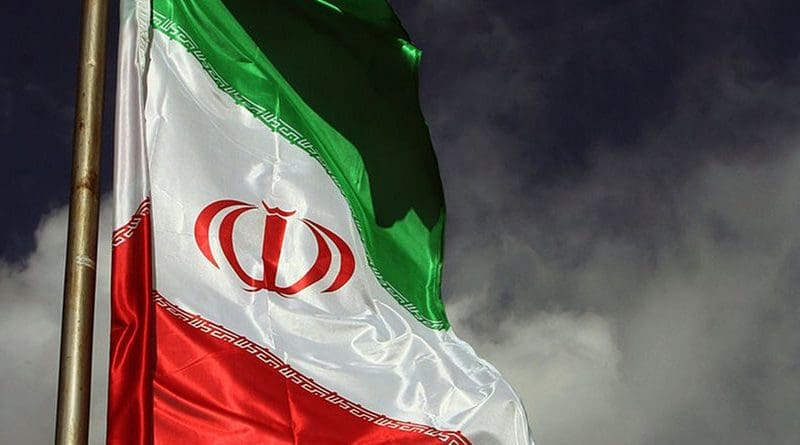China-Iran: Common Grounds For Cooperation – Analysis
By IPCS
By Tapan Bharadwaj*
Given the recent ‘mainstreaming’ of Iran, it is important to consider its foreign relations, and especially relevant in this context is its relationship with China and the future prospects of this bilateral, with particular focus on its economic aspect.
What are therefore the major areas for cooperation between the two countries?
Setting the Stage
The China-Iran bilateral relationship is unique primarily due to the level of trust both parties share. This kind of trust is absent between Iran and other partner countries. There are several instances where both have weighed favourably towards the other at regional and global platforms – this includes the period of international economic sanctions against Iran. Here, both the willingness and capability of states to act a certain way count.
China issued its first ever white paper on its Arab policy on 13 January 2016, just before President Xi Jinping’s visit to the region. The white paper coincided with the declaration of the Joint Comprehensive Plan of Action’s (JCPOA) ‘Implementation Day’, 16 January 2016. The JCPOA was an agreement negotiated and signed between Iran and the P5+1 (China, France, Russia, UK, US and Germany). The Chinese government played an important role in these international negotiations, aimed at lifting sanctions on Iran in exchange for limitations on their nuclear weapons programme.
Xi Jinping and Hassan Rouhani promised to increase bilateral trade to US$600 billion in 10 years, during the former’s visit to Iran on 23 January 2016. Trade between two stood at around US$52 billion in 2014, before the plunge in oil prices. Rouhani’s promise to revive Iran’s national economy was a priority of his election agenda, which contributed significantly to his victory in the 2013 election. The results of the twin elections for parliament and clerical assembly experts, held in February 2016, have also shown support for these promises.
Common Grounds for Cooperation
China, in its white paper, talks about a “1+2+3” cooperation pattern with Arab countries. This has energy cooperation at its core, with infrastructure construction, trade, and investment facilitation as secondary, and cooperation in the fields of nuclear energy, space satellites and new energy as tertiary.
China’s cross-continental ‘one belt one road’ (OBOR) initiative, Iran’s quest for integration with the world, China’s potential to invest, and Iran’s great reserves of hydrocarbons provide an excellent, mutually beneficial scenario for cooperation between Beijing and Tehran.
Iran has the fourth-largest proved crude oil reserves in the world. It is the third-largest producer in the Organisation for Petroleum Exporting Countries (OPEC), the largest oil producing cartel in the world. Iran therefore plays an influential role in deciding the international price of oil from the supply side of the market. China is the world’s second largest oil consumer and the world’s largest net importer of petroleum and other liquids. This makes it a very important country with the ability to influence international oil prices from the demand side. The extent of Beijing and Tehran’s cooperation would be a very important element of the oil demand/supply dynamics.
Chinese Gains
China’s presence in West Asia has never been more important than it is today. Although China’s economic growth rate is on the decline, it is still significantly high. Its economic growth runs on the wheels of its energy and trade policies, and oil import is an important element of its energy policy. China’s interest in Iran thus will be dominated by its focus on oil imports. Moreover, Iran’s geographical location is significant to China’s ambitious OBOR initiative. Iran today provides attractive opportunities for Chinese investment. Better relations with Iran will likely enhance China’s energy security policy and provide a market to sell its ‘cheap-workable-technologically-upgraded’ products.
Iranian Gains
Iran has not been able to use its oil and natural gas resources to fully realise the potential of its economy. In the current circumstances, Iran has been provided with an opening to use its natural resources in the support of its economic growth, and China has shown a positive interest in this. The space and time is perfect for both to come together in an advantageous way. Iran is primarily looking for investments from China in its infrastructure sector. The arrival of the first cargo train from China and China’s interest in financing the Masjed Soleyman petrochemical project are some indicators of the growing cooperation between both. China’s ability to successfully distance itself from domestic politicking in the countries in which it invests is an important determinant of Iran’s keenness to cooperate with China.
Future Prospects
The US, a regional and global power, is unlikely to exit West Asia. Concomitantly, China’s presence in the region is also growing. This could lead to a ‘cold-hot-conflict’ type situation. Iran might look to draw closer to China as this engagement, unlike its relationships with the West, does not come with clauses of good governance and human rights concerns attached.
Oil and gas imports would be the top priorities for China in its engagement with Iran, while Iran would consider Chinese investments to enhance its domestic oil production capacity on the top of its agenda. The future appears bright for this relationship – better relations will be rewarding for both, in which Iran is likely to benefit immediately while China in the near and distant future.
* Tapan Bharadwaj
Research Intern, CRP, IPCS

